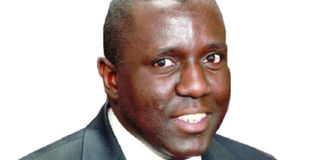Constitutional moves in Great Lakes region expose state fragility

Something seems to have snapped in the Great Lakes region this year. The entire region is in need of urgent attention. Some are emergency cases like South Sudan that has continued to slide into strife and chaos exporting more than one million refugees to Uganda.
Other states often mentioned on the list of democratic countries like Zambia and Tanzania have slid into authoritarianism. Both are punching the lawful Opposition with muscular antagonism.
Uganda and Rwanda with their unique histories are autocracies with regular elections that has features of both muscular antagonism and now a unique problem where and how to house leaders when they leave office.
Elections once promising as a regular exercise in renewal of leadership are likely to be shunned in the coming years. Burundi is almost giving up and so is the DRC. It is important to turn to this theme over and over again as it may be a signal of what lies ahead.
At the 50 year mark, many nations committed great mistakes and encountered major upheavals. The United States, after the Andrew Jackson presidency, which thrived on patronage, slid into a civil war over the abolition of slavery, which ended Abraham Lincoln’s presidency, but saved the country.
The Weimar republic in Germany in the 1920s failed to hold together leading to the rise of National Socialists in the 1930s and the later outbreak of World War I. The British and French much older already enfeebled by strain of the colonies and the losses in World War I, limped off the stage as global powers ceding the stage to the United States and the Soviet Union.
We do not have to look further than Egypt, Sudan, Ethiopia, and Nigeria to see how the 50-year mark has left notable, but distinct marks on some of Africa’s biggest and most populous countries. Egypt has a constitutional autocracy where the military controls the State and is led by a military officer after an upheaval caused by the election in a popular vote of the Muslim Brotherhood, which threatened Western interests in the Suez.
Sudan is now returning to the world community after a divisive war, de-copulation of the south and need to end sanctions to exploit new oil wealth. In Ethiopia, the modern state has gone through three distinct phases - the monarchy, the Marxist state and the current autocratic state that had remade in the country in the mould of the majority. Nigeria after a few uncertain steps, seems ready to handle its chronically corrupt political and economic system five decades after squandering its oil wealth.
Very few countries have gone far with authoritarianism and autocracies, but that is the first defence mechanism when leadership feels cornered when the State cannot satisfy society’s needs.
The age limit campaign has come at a time of increasing anxiety over public finances. Public sector strikes, anger and anxiety over unemployment have made the terrain very difficult for democratic rule. In Kenya, the outcome of the election rerun is also pointing to a significant curb in democratic liberties. It is now very clear that the Opposition had a candidate for the poor and the oppressed.
Tanzania, Zambia and Rwanda’s experiments with more forceful tactics to crush the Opposition need take a cue from Uganda where they have not only failed, but also hampered the effectiveness of State instruments.
The Great Lakes region has some significant differences with the larger African countries. The region with a few exceptions, is generally self-sufficient in food. Agriculture is still a major employer even though sometimes it is a veil for hidden unemployment.
The armies of farmers are outside the protection of the nation-state. Uganda has just 130,000 active pensioners. In 2016, NSSF reported just 25,000 employers and an asset base of just $1.85 billion for a population of 40 million or net savings of just $4.6625 per head.
If the food subsidy is removed, and provision for debt payments made, the ominous signs are clear, more force, less discussion.
Mr Ssemogerere is an Attorney-at-Law
and an Advocate. [email protected]




